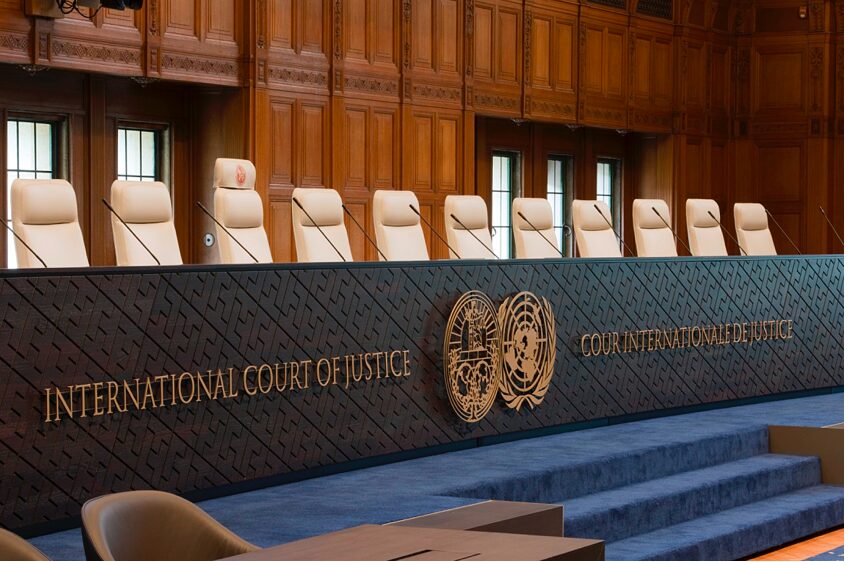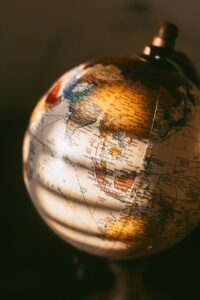The ICJ Selective Justice And Political Theater. A Case That Should Not Exist And Why The UAE Is Being Targeted For A War It Didn’t Start.
The International Court of Justice (ICJ) does not have jurisdiction nor the legal or moral authority to try the UAE, especially in light of the broader double standards of international justice.
In the war-torn crisis of Sudan, clarity is a scarce resource. The international community, overwhelmed by complexity and eager for narratives, has begun to reach for easy villains. Lately, that finger has pointed toward the United Arab Emirates.
Sudan’s referral of the UAE to the International Court of Justice (ICJ), accusing it of complicity in genocide by supporting the Rapid Support Forces (RSF), is more than a legal dispute; it is a revealing case study in geopolitical deflection, media manipulation, and the weakening credibility of international institutions.
Let us begin with what the ICJ is and what it is not.
The ICJ is the principal judicial organ of the United Nations. Its jurisdiction, however, is based on the consent of the parties involved. This is a fundamental principle of international law. The UAE, like the United States and many sovereign nations, does not accept compulsory jurisdiction in all cases. It is not legally bound to stand trial simply because one party points a finger.

More importantly, where is the evidence?
Thus far, no verified, independent investigation has substantiated the claim that the UAE has armed the RSF with the intent or outcome of facilitating genocide. The accusation lacks both judicial standing and factual foundation. It hinges more on the politics of blame than the pursuit of justice.
Compare this to the international response to the war in Ukraine. When Ukraine was invaded by Russia, Western powers, including the United States and members of the European Union provided weapons, logistics, intelligence, and strategic support to help Ukraine defend itself. No international court indicted them for aiding war. On the contrary, this assistance was lauded as support for sovereignty and self-determination.
So why is the same logic not applied with the UAE?
The ICJ’s silence on decades of overt military interventions in Iraq, Syria, Libya, and other parts of the region is deafening. Where was its jurisdiction when entire cities were flattened and civilian populations displaced by superpowers and coalitions? Why is it now awakening to Sudan, only to pursue a Gulf nation with no confirmed battlefield presence?
This is not justice. This is geopolitical theater.
The truth is, Sudan’s civil war began with a broken political agreement. The Sovereign Council meant to guide Sudan toward democratic elections, was dismantled when General Burhan refused to step down. The RSF, once his ally, became his enemy. The result: a civil war born from betrayal and hunger for power, not foreign intervention.
The UAE’s role in Sudan has been, at most, diplomatic and economic, a good brother good neighbor support, aligned with global efforts to mediate, not escalate. Its logistical ties with both sides were part of Sudan’s broader regional engagement strategy, not covert war funding. The claims against the UAE are not only false, they are borderline indignant, baseless and irresponsible. What is at stake is not just the name of a nation but the credibility of international justice itself. Justice must be universal or it becomes nothing more than selective enforcement.
And what of Sudan’s responsibility in all this? Who is truly accountable?
Rather than playing the victim on the international stage and pointing fingers at the United Arab Emirates, Sudan must confront the reality of its own actions. The Sudanese establishment and the political culture that surrounds it needs deep introspection. For decades, the country has been marked by corruption, mismanagement, suppression of its own people, and the erosion of public trust. Institutions have failed. Agreements have been broken. Leaders have manipulated the masses with empty rhetoric while denying them education, dignity, and truth.
This crisis did not begin with foreign influence. It began with Sudan’s own refusal to build a governance system rooted in justice, transparency, and accountability. It is time for Sudan to stop shifting blame outward and begin the long-overdue work of cleaning its own house. Until the nation takes ownership of its collapse, until it recognizes that governance is not a performance but a responsibility, no amount of international litigation will restore its dignity.
As for the International Court of Justice (ICJ), it must tread carefully. To continue down a path that ignores the absence of credible evidence, disregards national sovereignty, and bends to politicized narratives is to undermine its own relevance. Institutions meant to uphold global justice should not be misused as instruments of diplomatic theater. When they are, they lose not only authority but their very reason for existing. At some point, we must ask: Qui bono? Who truly benefits from such hollow proceedings?
Playing the adult in the room: the UAE’s role in a region on fire
To accuse the United Arab Emirates of fueling Sudan’s internal collapse is not only unfounded. It is absurd. It is like blaming your neighbor for the fire your own family set in your living room. Sudan’s crisis did not originate in Abu Dhabi. It originated in Khartoum, from the broken agreements, political manipulation, and absence of governance that has plagued the country for decades. Sudan must look inward. The nation’s leadership must own its role in perpetuating conflict, its failures in providing education and truth to its people, and the systemic corruption that continues to destabilize the very foundation of its society.
The UAE a regional anchor for stability.
And in stark contrast to all of this, we see the role the United Arab Emirates has played, calm, measured, strategic. The UAE has positioned itself as a regional anchor, quietly and consistently working to de-escalate conflicts, build bridges, and offer a vision of prosperity in a region battered by unrest. While others shout, the UAE acts. While others blame, it builds. It has become, in many ways, the adult in the room.
A cheap distraction from the real crisis.
To attempt to tarnish the UAE’s reputation, at a time when it is offering stability and economic cooperation to a region starved of both, is not only dishonest, it is dangerous. These accusations serve as a cheap distraction from the real crisis: the refusal of some leaders to take accountability. The very individuals who should be answering for Sudan’s collapse are now either silent, vanished, or quietly pulling strings to sow confusion in the court of public opinion.
Wrapping Up with Key Insights
Clarity is everything. The truth takes courage.
In this moment, clarity is everything. The region does not need scapegoats but it needs statesmanship. It does not need theater but it needs truth. And truth, in this case, is simple: the UAE’s efforts toward peace, prosperity, and pragmatic diplomacy should not be sabotaged. These efforts should be respected, and, frankly, emulated.
-
Israel Has the Right to the Holy Land.
The Evidence from The Quran. By The Bedouin Report Among the many matters clouded by…
-
Mecca Still Standing
Sacred Geography, Scriptural Silence, and Historical Qualms. Revisionism and the Politics of Denial By Bedouin…
-
International Law’s Role in MENA Politics
This paragraph serves as an introduction to your blog post. Begin by discussing the primary…
-
Key Conflicts Shaping the Middle East Today
This paragraph serves as an introduction to your blog post. Begin by discussing the primary…











More Stories
The Ethical Approach to Reporting on the MENA Region
China-Taiwan Tensions Mount: What Recent Actions Reveal
COVID-19 Updates: What the Latest Data and Vaccines Reveal